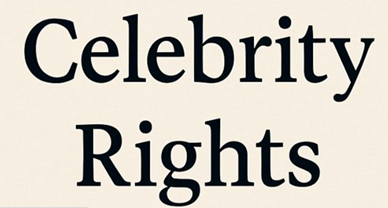Copyrightability Of Players’ Creation In The Gaming Regime
Introduction
The efforts of the game developing companies in making the virtual spaces have ample scope for fostering the gamers’ innovation for birthing new creations has induced the development of the million-dollar gaming industry. Modern games provide an interactive gaming environment, wherein players have ample freedom to sculpt their independent creations in the pre-existing gameplay, and such “original” creations are essentially Player-Created Content (PCC).
There are several kinds of PCC but the article takes into consideration the most prevalent and imperative ones, in gameplay: machinima and game-mods.
[Image Sources : Shutterstock]
Games provide the users with certain tools to alter the video game graphics by manipulating the plot, creating new avatars, choosing their physicality and personality, developing new levels, and other such creations within the gameplay, is machinima, whereas creating extensions to the pre-existing gaming framework which are intrinsically independent of the audiovisuals of the existing game, are called mods. Mods are separate creations of the game and can be accessed without logging into the game. It is to be made sufficiently clear that the aforementioned creations ought to be original and independent, rather than a slightly altered version of the creation already in the public domain, to instill looking into the prospects of copyrightability.
Debate Of Rights
In the world of gaming, players often create unique characters, weapons, and other in-game items that they put significant time and effort into developing. However, the question of who owns the rights to these creations has been a topic of debate for some time.
On one hand, some argue that players should have the right to own and control their creations. This view is based on the idea that players have put in the time and effort to create these items and should be able to enjoy the fruits of their labor. Additionally, allowing players to retain the rights to their creations could incentivize them to continue creating and contributing to the gaming community.
On the other hand, some argue that game developers and publishers should have the right to use and monetize players’ creations. This view is based on the idea that game developers and publishers have invested significant resources into creating the game itself, and therefore should have the right to control and profit from any creations that take place within it. Additionally, some argue that allowing players to retain the rights to their creations could limit the ability of game developers and publishers to create new content and monetize their games.
Having mentioned that, it can be safely inferred that if PCC passes the criteria of originality and substantial contribution, it would be deemed fit to be copyrighted but the notable point here is that the game in itself is also a copyrightable creation and hence the determination of the ownership of rights will become perplexing since the subjects that are to be copyrighted are overlapping for the reason that no matter how original the PCC is, it has been developed pertaining to the gameplay.
Critical Analysis & Suggestions
Some authors have given potential solutions such as joint authorship and derivative authors, both of which require requisite analysis.
Joint authorship requires the work of parties to be independently copyrightable and significantly contributive[1]. Considering the ever-evolving nature of the gameplay for PCC for it is created in an environment that has been put together by several players before, it is nearly impossible to determine the stage when the work became “independently original”, a pre-requisite for copyright and to accredit one particular gamer for the creation since the claims of contribution to the pre-existing gameplay in which PPC was created would be exceedingly high. Moreover, the majority of the gamers in the gameplay are inclined to develop their creations, and considering the abundant number of gamers, it would be a daunting task for copyright management to examine the copyrightability of every creation and grant the same. Contrary to the principle of copyright, such a copyright mechanism disincentivizes innovation efforts by game developers and causes holding-up problems, further working against the prosperity of the gaming industry and innovation.
The suitability of deeming the gamers as “derivative authors” can also be ruled out, since this would require the gamers to take consent from the game developers for creating. When the gamer logs into the game after agreeing to the EULA, which is a click-wrap agreement at the start, having only an “I Agree” option, with no potential way of ensuring if it has been read by the gamer, the assent of the game is assumed there, with no need of concrete and additional assent for gamers to enjoy the rights of “derivative authors”. Considering the immensely high resources that the developer puts into the game as opposed to the player, it seems exceedingly unreasonable to give players ample powers to prevent the game owners from secondary use, and that too based on EULA, which has been shown in various studies to be more often than not be ignored by the users[2].
Keeping in mind the aforementioned dilemma encountered by the developers and gamers, the author focuses on providing such solutions that keep the interests of all the stakeholders in order. The gamers would be drawn away if they do not have sufficient scope to create and take credit for the same. At the same time, it is unfair for the developers to have hindered access to their own created game environment, the development of which demands abundant resource investment. Additionally, an approach wherein neither the developer nor the consumer can potentially model regulations and set hindrances to each other’s access to the gameplay can be explored by analyzing the parallel creation model, for the creations within the gaming framework and granting Creative Commons(CC), in case of game mods.
Delving into the parallel creation model, proposed for machinima, it is proposed that it should be based on collaborative creation and no exclusionary ownership. Creations within the gaming framework can never be “independent” or “original”, to begin with. Further, providing copyright to the creations would demotivate the gamers to play for the threat of copyright infringement would always be looming while they create in the pre-existing environment. The freedom to develop one’s creations has to exist for the perpetuity of the games. Therefore, the players, deeming their creations to be original enough, can take a photograph or video of such a creation and get it copyrighted. This approach keeps the interests of the game developers intact as users would be incentivized to login, pay the login fees and purchase the gaming tools, considering their creations are temporary. This also rules out the threat of the creation of a new game and is more convenient since developers do not have to take the pain of extracting copyright fees from a lot of users.
Moving onto the game extensions/mods, this is to be kept in mind that these are new works, separate from the game, hence qualify for copyright but the copyright ownership leading the developers to forsake their control is unreasonable in the absence of any benefits. Game-mods, being independent of the original work do not require login to the original game or usage of virtual tools and can be accessed separately, hence cannot possibly promote the use of the pre-existing game. Moreover, the commercialization of such mods would become a threat to the gaming regime. Hence, the approach of granting CC is deemed most reasonable, wherein the mod developers would be granted their due derivative rights, rather than exclusive rights, and the complete surrender of rights by developers is not required. An aspect of “BY-NC-SA” shall be applicable, under which the gamers are required to credit the original game in their mods[3]. This approach is justifiable since it does not hamper the user’s creativity by allowing them to create PCC and is reasonable to the game developers as it does not grant exclusive rights to the players. The commercialization of PCC would require the approval of both, the game developer and the mod-developer. The other benefits include enhancement in the life of the game by giving the players their rights ensuring playability and hence revenue. Lastly, the extensions can provide the developers with enough ideas to instill their brainstorming into periodically updating the game.
Conclusion
In conclusion, the question of copyrightability of players’ creations in the gaming regime is a complex one that raises various legal and ethical issues. While some argue that players should have the right to own and control their creations, others argue that game developers and publishers should have the right to use and monetize those creations. Ultimately, the answer to this question likely depends on the specific circumstances of each case and may be determined on a case-by-case basis by a court. It is important for all parties involved to be aware of the legal and ethical considerations surrounding this issue and to work towards finding a fair and equitable solution. The aforementioned analysis and solutions aim to strike the requisite balance between the interests of the involved stakeholders and solve the legal dilemmas for the flourishing gaming industry.
Author: Runjhun Sharma, 2nd year student of Dr. Ram Manohar Lohiya National Law University, in case of any queries please contact/write back to us at support@ipandlegalfilings.com or IP & Legal Filing.
References
- Lian Cicily Joseph, Modern Developments in Copyright Law and the Governance of E-Sports, 3.2 JIPS 48(2020)
- Arnav Bishnoiand Achint Johri, Different Strands of IP in Sports and E-Gaming Industry: Exploring the Horizons, CNLU LJ (9) [2020] 89
- Naman Khanna, CopyrightLaw and Sports- An Interconnection from Broadcasting Live Sporting Events to Signature Sports Moves, 2.1 GSPR (2021) 131
- Zhaoxia Deng, Illegal To Play? Re-Examining The Copyright Ownership Of Player Created Content, GNLU L. Rev. 22 (2021)
- Joanna E. Collins, User-Friendly Licensing for a User-Generated World: The Future of the Video-Content Market, 15 Vand. J. Ent. & Tech. L. 407 (2013)
- Ragavi Ramesh, Balancing Protection and Access in Digital Locks : Analysing Recent Amendments in Indian Copyright Law, 3 NSLJ (2014) 84
[1] Childress v. Taylor, 945 F 2d 500 (2nd Cir 1991)
[2] Alex Hern,’I read all the small print on the internet and it made me want to die’( The Guardian, 15 July 2015) https://www.theguardian.com/technology/2015/jun/15/i-read-all-the-small-print-on-the-internet>
[3] University of Pittsburgh, ‘Copyright and Intellectual Property Toolkit’(Course and Subject Guides, 17 August 2022) https://pitt.libguides.com/copyright/licenses>



